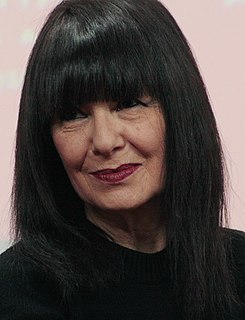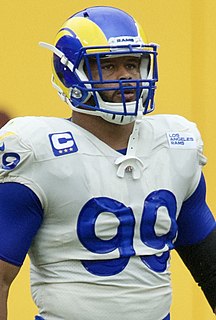A Quote by Peter Carey
So in the first draft, I'm inventing people and place with a broad schematic idea of what's going to happen. In the process, of course, I discover all sorts of bigger and more substantial things.
Related Quotes
I have an idea and a first line -- and that suggests the rest of it. I have little concept of what I’m going to say, or where it’s going. I have some idea of how long it’s going to be -- but not what will happen or what the themes will be. That’s the intrigue of doing it -- it’s a process of discovery. You get to discover what you’re going to say and what it’s going to mean.
One of the things that really impressed me about Anna Karenina when I first read it was how Tolstoy sets you up to expect certain things to happen - and they don't. Everything is set up for you to think Anna is going to die in childbirth. She dreams it's going to happen, the doctor, Vronsky and Karenin think it's going to happen, and it's what should happen to an adulteress by the rules of a nineteenth-century novel. But then it doesn't happen. It's so fascinating to be left in that space, in a kind of free fall, where you have no idea what's going to happen.
Usually, the way I write is to sit down at a typewriter after that year or so of what passes for thinking, and I write a first draft quite rapidly. Read it over. Make a few pencil corrections, where I think I've got the rhythms wrong in the speeches, for example, and then retype the whole thing. And in the retyping I discover that maybe one or two more speeches will come in. One or two more things will happen, but not much.
Expectations are usually predicated on the idea that the everyday things that happen to ordinary people shouldn't happen to you. People hold the idea of being ordinary in absolute contempt, so when they face an illness, poverty, or any kind of catastrophe, they say, 'I can't believe this happened to me.' And who did you think it was going to happen to - the woman across the street?
When I left Africa in 1966 it seemed to me to be a place that was developing, going in a particular direction, and I don't think that is the case now. And it's a place where people still kid themselves - you know, in a few years this will happen or that will happen. Well, it's not going to happen. It's never going to happen.
Almost all good writing begins with terrible first efforts. You need to start somewhere. Start by getting something-anything-down on paper. A friend of mine says that the first draft is the down draft-you just get it down. The second draft is the up draft-you fix it up. You try to say what you have to say more accurately. And the third draft is the dental draft, where you check every tooth, to see if it's loose or cramped or decayed, or even, God help us, healthy.
I am a technophile, so there is no such thing as a first draft. The first draft plunges on, and about a quarter of the way through it I realise I'm doing things wrong, so I start rewriting it. What you call the first draft becomes rather like a caterpillar; it is progressing fairly slowly, but there is movement up and down its whole length, the whole story is being changed. I call this draft zero, telling myself how the story is supposed to go.
The Democrats talked about putting people first. Well, they put people first unless you happen to be a spotted owl or a giant garter snake or some other endangered species and then that seems to have priority. Obviously, you take the bald eagle and things of that sort, of course you're going to make sure that they are saved and that they can live and you're going to take every precaution that you can. But others - we just need a little flexibility.





































